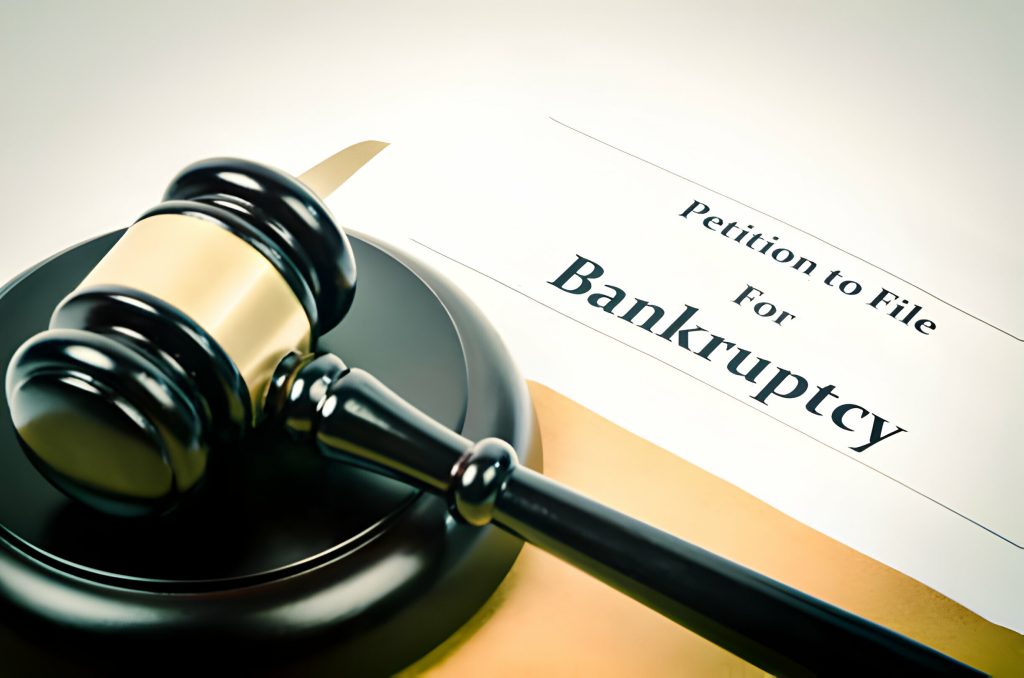Are you drowning in a sea of debt? Wondering if filing for Chapter 7 bankruptcy is the life preserver you need? Well, hold on tight because we’re about to dive into the depths of your financial situation. In this article, we’ll explore just how much debt you have to be in to qualify for Chapter 7 bankruptcy. So grab your calculator and get ready to crunch those numbers, because relief may be closer than you think!
Factors Affecting Eligibility for Chapter 7 Bankruptcy
To determine if you are eligible for Chapter 7 bankruptcy, your income and expenses will be evaluated through a means test. The factors affecting your income, such as employment status, wages, and any additional sources of income, will be considered in the means test calculation. Your eligibility requirements depend on whether your income is below or above the median income in your state. If it is below the median, you may be eligible for Chapter 7 without further calculations. However, if your income is above the median, adjustments for household size and necessary expenses will be made to determine your disposable income. Higher disposable income may result in eligibility for Chapter 13 bankruptcy instead. It’s important to accurately report all of your income and expenses during the means test process to ensure eligibility is properly determined and understood by both you and the court.
Understanding the Chapter 7 Means Test
Understanding the Chapter 7 means test is crucial for determining your eligibility for bankruptcy. The Chapter 7 means test evaluates your income and disposable income to determine if you qualify for Chapter 7 bankruptcy. Your income is compared to the median income in your state, and if it falls below the median, you may be eligible for Chapter 7. However, if your income is above the median, further calculations are required.
To calculate your income, you need to include all sources of income while excluding certain benefits like social security. Adjustments are made based on household size and expenses. It’s important to note that higher income may make you eligible for Chapter 13 bankruptcy instead.
Understanding how the Chapter 7 means test works and meeting its qualifying criteria are essential factors in determining your eligibility for bankruptcy. By carefully calculating your income and understanding the expenses and deductions allowed under the test, you can determine if filing for Chapter 7 bankruptcy is a viable option for resolving your financial difficulties.
Benefits of Filing for Chapter 7 Bankruptcy
Filing for Chapter 7 bankruptcy can provide relief by eliminating unsecured debts and stopping debt collection activities. Here are some benefits of filing for Chapter 7 bankruptcy:
- Debt Elimination: Chapter 7 allows for the elimination of unsecured debt, such as credit card bills and medical expenses.
- Asset Protection: In certain circumstances, you may be able to retain assets like your house and car.
- Pros and Cons: While Chapter 7 provides a fresh financial start, it does have long-lasting consequences on your credit report.
- Credit Impact: Filing for bankruptcy causes a drop in your credit score, affecting your borrowing ability for up to 10 years.
- Repayment Options: Unlike other forms of bankruptcy, Chapter 7 does not require agreeing to a repayment plan.
Consider these factors when deciding if filing for Chapter 7 bankruptcy is the right choice for you.
Debts That Cannot Be Discharged in Chapter 7 Bankruptcy
Certain obligations, such as child support and tax debts, cannot be discharged in Chapter 7 bankruptcy. If you find yourself facing these non-dischargeable debts, it’s important to explore other options for repayment. One option is negotiating with creditors to establish lower payment terms that fit your financial situation. Another option is to explore repayment plans specifically designed for tax debts or student loans. For tax debt, you may be eligible for installment agreements or an offer in compromise, which allows you to settle your debt for less than the full amount owed. Student loan repayment alternatives include income-driven repayment plans or loan rehabilitation programs. Additionally, you can consider debt settlement options where you work with a professional negotiator to reach a settlement with your creditors. It’s crucial to thoroughly research and understand these alternatives before making any decisions regarding non-dischargeable debts in Chapter 7 bankruptcy.
Exploring Alternatives to Chapter 7 Bankruptcy
If you’re considering alternatives to Chapter 7 bankruptcy, it’s important to explore other options that may be available to help manage your financial situation. Here are a couple of alternatives you can consider:
- Debt consolidation: This involves obtaining a loan to pay off all your debts, resulting in a single payment. It can help simplify your payments and potentially lower your interest rates.
- Look for a lower interest rate and favorable terms when considering debt consolidation.
- Changing financial habits is necessary for long-term success with debt consolidation.
- Debt relief services: These involve negotiating a debt repayment lower than the current owed amount.
- Working with a reputable debt relief company can take 2-5 years to completely resolve debt.
- Research companies with experience in working with creditors and readily available staff to answer questions.
Eligibility Criteria for Chapter 7 Bankruptcy
The eligibility criteria for Chapter 7 bankruptcy include being an individual citizen, business owner, or corporation. To determine if you qualify for Chapter 7, your income and debt threshold will be evaluated through a means test calculation. This means test compares your income to the median income in your state and calculates your disposable income by deducting monthly expenses. If your income falls below the median and you meet other qualifying criteria such as not having had any debts discharged through bankruptcy in the previous 6-8 years and completing court-approved credit counseling, you may be eligible for Chapter 7 bankruptcy. It is important to consult with a lawyer to understand the specific income requirements and eligibility factors based on your individual circumstances.
| Eligibility Factors | Criteria |
|---|---|
| Individual Citizenship | Must be a U.S. citizen or have legal residency |
| Business Ownership | Can file as a business owner or corporation |
| Debt Discharge History | No debts discharged through bankruptcy in the last 6-8 years |
| Completion of Credit Counseling | Court-approved credit counseling within the last six months |
Table: Eligibility Factors for Chapter 7 Bankruptcy
The Filing Process for Chapter 7 Bankruptcy
To begin the filing process for Chapter 7 bankruptcy, start by contacting a bankruptcy lawyer who can guide you through the necessary steps and relieve your financial burden. Here’s what you can expect during the filing process:
- Meeting with a bankruptcy lawyer: Your lawyer will help you understand the eligibility requirements and assess your financial situation to determine if Chapter 7 is the right option for you.
- Required documentation for filing: You will need to gather important documents such as asset and debt lists, income statements, tax records, and proof of credit counseling.
- Meeting with a case trustee: After filing your bankruptcy petition, you will have a meeting with a case trustee who will evaluate your financial situation and ensure that all required documentation is provided.
- Discharge of debts: Upon completion of the bankruptcy process, qualifying debts will be discharged, relieving you from the obligation to repay them.
- Post-bankruptcy financial planning: It is crucial to engage in post-bankruptcy financial planning to rebuild your credit and regain financial stability. Consider working with a financial advisor or credit counselor to create a budget, establish savings goals, and make responsible financial decisions moving forward.
Consequences of Debt Discharge in Chapter 7 Bankruptcy
After the discharge of debts in Chapter 7 bankruptcy, creditors cannot legally pursue repayment through means such as wage garnishment or legal actions. This provides you with important legal protections and relief from the burden of debt. One of the key benefits is the impact on your credit. While filing for bankruptcy can initially lower your credit score, it also offers a fresh start opportunity to rebuild your financial standing. Additionally, Chapter 7 bankruptcy allows you to retain certain assets like your home and car in most cases. This gives you the opportunity to maintain stability while working towards a better financial future. Overall, Chapter 7 bankruptcy provides you with debt relief options and a chance for a fresh start by protecting your assets and providing legal protections against creditor actions.
Steps to Prepare for Filing Chapter 7 Bankruptcy
Now that you understand the consequences of debt discharge in Chapter 7 bankruptcy, let’s talk about the steps you need to take to prepare for filing. It’s important to be well-prepared and organized throughout this process. Here are some key steps:
- Start by gathering all the necessary documents: Prepare your financial records, including asset and debt lists, income statements, tax records, and any other relevant documentation.
- Conduct a thorough financial assessment: Take a close look at your debts, expenses, and income to get a clear understanding of your financial situation. This will help determine if filing for Chapter 7 bankruptcy is the right option for you.
- Consult with a bankruptcy lawyer: Schedule a consultation with an experienced bankruptcy lawyer who can guide you through the process and provide expert advice on your specific situation.
- Conduct a detailed debt analysis: Work with your lawyer to analyze your debts and understand which ones can be discharged through Chapter 7 bankruptcy. This analysis will help you make informed decisions about your bankruptcy options.
- Explore alternative options: While preparing for Chapter 7 bankruptcy, it’s also worth considering alternative solutions such as debt management plans or debt consolidation. Your lawyer can help you evaluate these options and determine which one is best for you.





